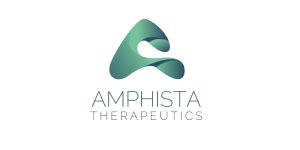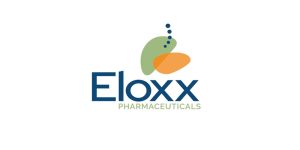F2G Announces $100 Million Financing to Advance Late-Stage Development and Commercialization of Novel Antifungal Drug Candidate Olorofim in the US
By Site Content Team F2G, Press Release, Private CompaniesPress Release.
F2G Announces $100 Million Financing to Advance Late-Stage Development and Commercialization of Novel Antifungal Drug Candidate Olorofim in the US
Financing is being led by new investor AMR Action Fund with strong participation from new investor ICG Life Sciences and existing investors
MANCHESTER, United Kingdom, September 12, 2024 – F2G Ltd, a clinical-stage biopharmaceutical company focused on the discovery and development of novel therapies to treat life-threatening rare fungal infections with a high unmet medical need, today announced a $100 million financing round. The financing is being led by new investor AMR Action Fund and co-led by ICG, with strong participation from existing investors Novo Holdings, Advent Life Sciences, Sofinnova Partners, Forbion, Blue Owl Healthcare Opportunities, Morningside Ventures, Brace Pharmaceuticals, and Merifin Capital. The proceeds from the financing will enable F2G to complete late-stage development, seek regulatory approval, and prepare for commercialization in the US of olorofim, a novel oral antifungal therapy to treat invasive aspergillosis (IA) and other invasive fungal infections. Henry Skinner, Ph.D., Chief Executive Officer of AMR Action Fund and Toby Sykes Ph.D., Managing Director of ICG Life Sciences, will join the F2G Board of Directors. The financing is subject to customary Foreign Direct Investment (FDI) clearance by local authorities in Austria, where F2G has a 100%-owned subsidiary, and expected to close in the fourth quarter of 2024.
Olorofim is the first orotomide antifungal, an entirely novel class of antifungal agents and is the only antifungal medication to be awarded a Breakthrough Therapy Designation for multiple indications by the US Food and Drug Administration (FDA). Olorofim works through a novel mechanism of action, different from existing classes of antifungals, exerting fungicidal activity through inhibition of the pyrimidine synthesis pathway. It is anticipated to be used to treat patients with a serious invasive, rare fungal disease where existing treatments are inappropriate or no longer effective.
Francesco Maria Lavino, Chief Executive Officer of F2G, said: “We are delighted to attract this additional capital investment into F2G, and we are thrilled to be working with the AMR Action Fund, an important player in the antimicrobial space, and ICG, a leading alternative asset manager. The addition of Dr. Skinner and Dr. Sykes to our Board will be invaluable as we move to our next stage of growth. This is a pivotal period for the Company as we conclude the final stages of development and preparation for commercialization of olorofim in the US and elsewhere. If approved, olorofim is expected to be the first of a new class of antifungal agents with a novel, differentiated mechanism of action and will address genuine unmet needs in conditions with high morbidity and mortality.”
Dr. Skinner commented: “Fungal infections are a growing threat to patients around the world and have a disproportionate impact on vulnerable populations, yet there has been a paucity of innovation in the field of antifungals. For decades, clinicians have relied on a handful of antifungal classes, with few mechanisms of action and significant limitations due to spectrum of activity, drug toxicities, or drug-drug interactions. These therapies are increasingly failing in patients. We are thrilled to support F2G’s team as they develop this urgently needed therapy and seek regulatory approval.”
Dr. Sykes commented: “Fungal pathogens continue to emerge and spread. This evolving threat underscores an urgent unmet medical need for advanced antifungal treatments. By investing in the development of novel antifungal drug candidates like olorofim, we hope to address this critical gap, ultimately making a meaningful and sustainable social impact on patients, their caregivers, and healthcare systems.”
About F2G
F2G is a clinical-stage biopharmaceutical company with operations in the UK, US, and Austria focused on the discovery and development of novel therapies to treat potentially life-threatening invasive fungal infections. F2G has discovered and developed a completely new class of antifungal agents called the orotomides which selectively target a key enzyme in the de novo pyrimidine biosynthesis pathway. This is a completely different mechanism from that of the currently marketed antifungal agents and gives the orotomides fungicidal activity against a broad range of rare and resistant fungal mold infections. For more information, please visit: www.f2g.com
About olorofim
Olorofim (formerly, F901318) is F2G’s leading candidate from the orotomide class and is currently in a Phase 2b open-label study (ClinicalTrials.gov Identifier: NCT03583164) in patients who have limited treatment options for difficult-to-treat invasive, rare fungal mold infections such as azole-resistant aspergillosis, scedosporiosis, lomentosporiosis, and other rare mold infections. F2G has initiated a global Phase 3 trial (“OASIS”) to compare treatment with olorofim versus liposomal amphotericin B followed by standard of care (SOC) in patients with invasive fungal disease caused by proven Invasive Aspergillus or probable lower respiratory tract disease by Aspergillus species. Olorofim has received orphan drug status from the European Medicines Agency for the treatment of invasive aspergillosis and invasive scedosporiosis. Olorofim has also received orphan drug status from the FDA for the treatment of coccidioidomycosis, scedosporiosis, and invasive aspergillosis. Olorofim has been granted Qualified Infectious Disease Product (QIDP) designation for invasive aspergillosis, invasive scedosporiosis, invasive lomentosporiosis, coccidioidomycosis, invasive disease due to Scopulariopsis species, and invasive fusariosis.
About invasive aspergillosis
Aspergillosis is a fungal infection caused by Aspergillus species of mold which are commonly found all over the world. Most of these molds, in most people, do not cause disease. However, Aspergillus is transmitted to humans through inhalation and may cause a broad spectrum of disease ranging from hypersensitivity reactions to direct invasion and destruction of tissue, especially in immunocompromised hosts. Invasive aspergillosis is a rare disease that can occur in over 10% of some high-risk immunosuppressed populations with mortality exceeding 80%.
Media Contact
Kristin Politi, Ph.D.
LifeSci Communications
kpoliti@lifescicomms.com
646-876-4783








